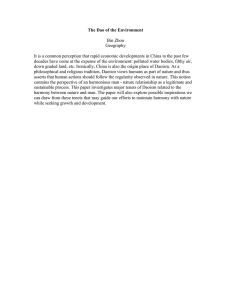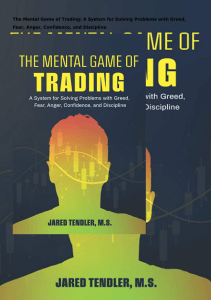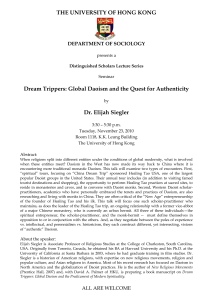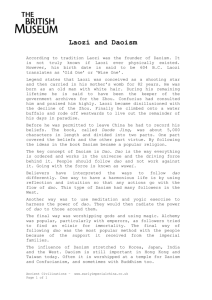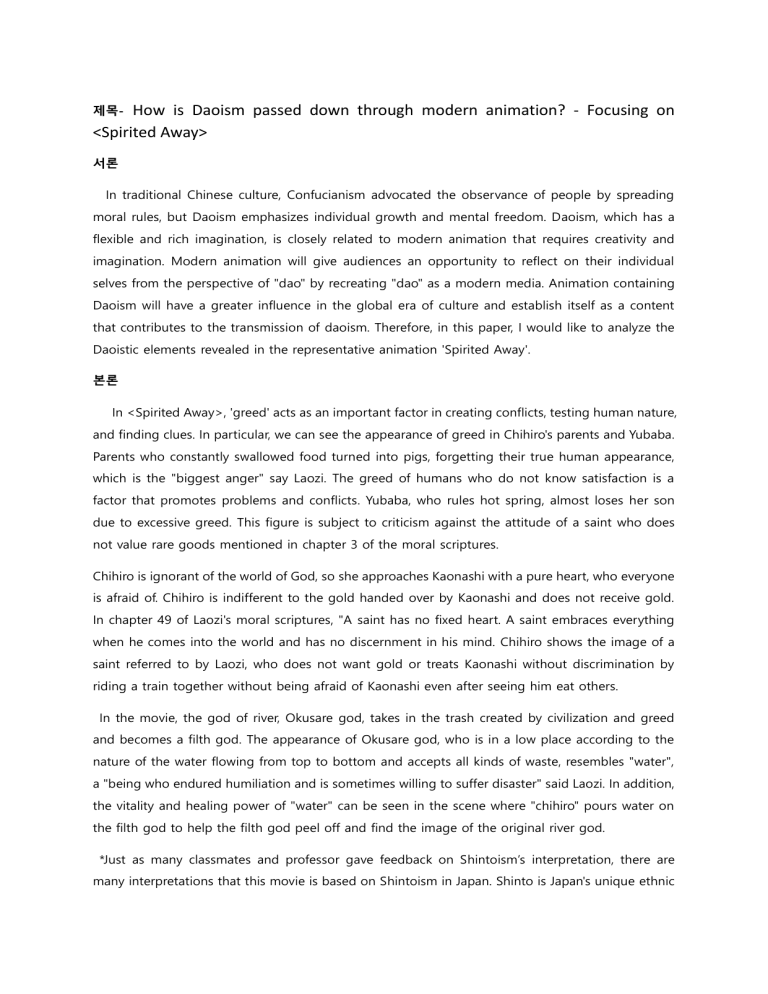
제목- How is Daoism passed down through modern animation? - Focusing on <Spirited Away> 서론 In traditional Chinese culture, Confucianism advocated the observance of people by spreading moral rules, but Daoism emphasizes individual growth and mental freedom. Daoism, which has a flexible and rich imagination, is closely related to modern animation that requires creativity and imagination. Modern animation will give audiences an opportunity to reflect on their individual selves from the perspective of "dao" by recreating "dao" as a modern media. Animation containing Daoism will have a greater influence in the global era of culture and establish itself as a content that contributes to the transmission of daoism. Therefore, in this paper, I would like to analyze the Daoistic elements revealed in the representative animation 'Spirited Away'. 본론 In <Spirited Away>, 'greed' acts as an important factor in creating conflicts, testing human nature, and finding clues. In particular, we can see the appearance of greed in Chihiro's parents and Yubaba. Parents who constantly swallowed food turned into pigs, forgetting their true human appearance, which is the "biggest anger" say Laozi. The greed of humans who do not know satisfaction is a factor that promotes problems and conflicts. Yubaba, who rules hot spring, almost loses her son due to excessive greed. This figure is subject to criticism against the attitude of a saint who does not value rare goods mentioned in chapter 3 of the moral scriptures. Chihiro is ignorant of the world of God, so she approaches Kaonashi with a pure heart, who everyone is afraid of. Chihiro is indifferent to the gold handed over by Kaonashi and does not receive gold. In chapter 49 of Laozi's moral scriptures, "A saint has no fixed heart. A saint embraces everything when he comes into the world and has no discernment in his mind. Chihiro shows the image of a saint referred to by Laozi, who does not want gold or treats Kaonashi without discrimination by riding a train together without being afraid of Kaonashi even after seeing him eat others. In the movie, the god of river, Okusare god, takes in the trash created by civilization and greed and becomes a filth god. The appearance of Okusare god, who is in a low place according to the nature of the water flowing from top to bottom and accepts all kinds of waste, resembles "water", a "being who endured humiliation and is sometimes willing to suffer disaster" said Laozi. In addition, the vitality and healing power of "water" can be seen in the scene where "chihiro" pours water on the filth god to help the filth god peel off and find the image of the original river god. *Just as many classmates and professor gave feedback on Shintoism’s interpretation, there are many interpretations that this movie is based on Shintoism in Japan. Shinto is Japan's unique ethnic faith, and the worship of ancestors or natural objects. In ancient Japan, there were countless gods, but after the Meiji Restoration, the cabinet began to deny and suppress the simple folk beliefs in order to establish a despotic state with the emperor at its peak. Japan's miscellaneous gods abandoned by humans in this situation are probably exhausted by alienation is the worldview in "Spirited Away." Therefore, Yubaba's hot spring resort, is designed to function as a "space for regeneration and healing" for ghosts who lose human love and struggle. 결론 In "Spirited Away", we looked at the daoist elements of greed, saint qualities, and water. Like many feedbacks, the film's overall background is strongly influenced by Shintoism, but I think that Chihiro's saint-like attitude in life and direct factors appearing throughout the movie show a stronger Daoist character. It is expected that the symbolic system of the pre-Qin period Daoism will be able to teach modern people lessons by combining specificity and universality, and provide endless sources for the creation of modern animation in the future. In addition, it would be a good study to think about how to pass down Daoism to modern people other than media contents.
